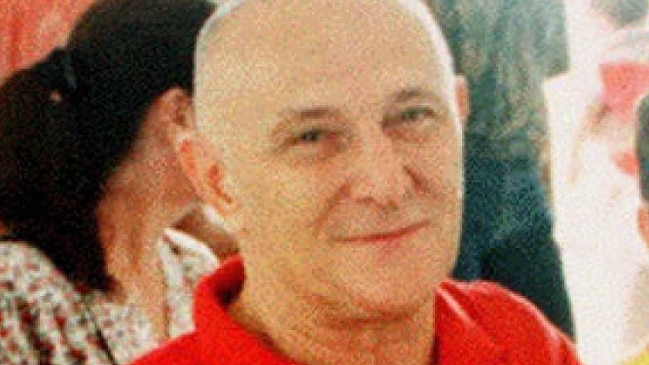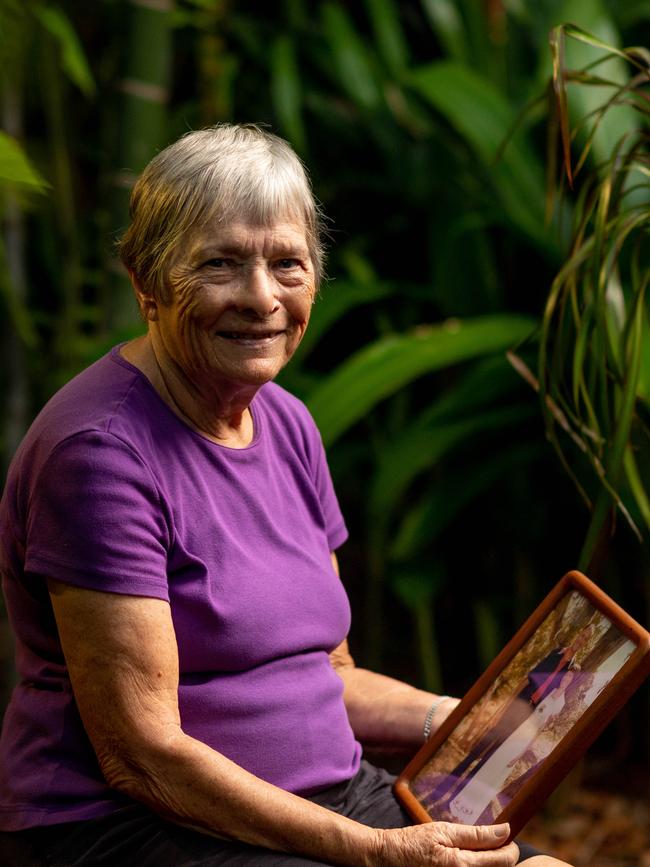Bob Dent forged the way ahead, widow carries on the challenge
ROBERT ‘Bob’ Dent was a pioneer and like the legalising of euthanasia, ahead of his time. Twenty-five years on his widow Judy continues to carry on the fight to give people the same option her husband had

Northern Territory
Don't miss out on the headlines from Northern Territory. Followed categories will be added to My News.
- NT, SA euthanasia advocates unite to renew calls for voluntary assisted dying to be legalised in the Territory
- NT and ACT ‘left behind’ on euthanasia laws as feds refuse to overturn ban made in 1997
ROBERT ‘Bob’ Dent was a pioneer and like the legalising of euthanasia, ahead of his time.
Mr Dent was the first person in the world to die legally by voluntary assisted dying, right here in the Territory at his home in the suburb of Tiwi.
Mr Dent had terminal cancer and had been suffering from prostate cancer for five years.
By the time he died he was taking 30 tablets a day to relieve the pain and treat the side effects of the heavy drugs he was taking.
His widow Judy Dent, a continued staunch campaigner for euthanasia in the NT, said they never spoke about his decision regarding euthanasia as she didn’t want to influence him.
MORE TOP NEWS
Finocchiaro calls on Gunner to address allegations Labor members involved in cocaine sex scandal
Let the work begin: Kakadu Master Plan sign-off to breathe new life into our world Heritage Park
“I don’t know how he came to his decision,” Ms Dent said.
“I didn’t want to influence him either way, so we did not really discuss the decision making.
“But he did tell a friend of ours who told me, Bob said he was going to be a pioneer, he was going to set an example, and I kind of figured he had that in mind.”
Mr Dent had been seeing euthanasia supporter Philip Nitschke for months after the Dents were put in touch with him by staff at palliative care as an after-hours’ doctor.
As Ms Dent recalls, Mr Dent asked her to invite Mr Nitschke over for lunch on Sunday, September 22, 1996 and ask him to bring his gear.
“He came and I deliberately made the lunch, as light as possible, because I could see Philip was having trouble trying to pretend it was just a casual visit,” she said.

After lunch Mr Dent said it was time and Mr Nitschke set up the gear beside the day bed on the veranda and handed him the laptop.
Mr Dent had to answer yes to three questions, at which point the computer released the lethal substance through a needle in his arm.
“He closed his eyes, and it looked as if somebody had ironed his face of all the pain, wrinkles, the frown wrinkles that just disappeared, just calm and peaceful, and then he stopped breathing,” she said.
“It’s the way to go as far as I’m concerned.”
$1 FOR ALL YOUR NEWS? HERE’S HOW: Sign up now to our amazing deal of $1 for 28 days
Ms Dent said while palliative care was able to provide some relief to her husband it was not enough.
“Their final answer is terminal sedation, now as far as I’m concerned, that’s slow euthanasia,” she said.
“Why don’t we just have it fast euthanasia, what’s the point of dragging it out for days. The end result is exactly the same.
“If you disagree with voluntary euthanasia, then don’t use it, but don’t deny me the right to use it if and when I want to.”


